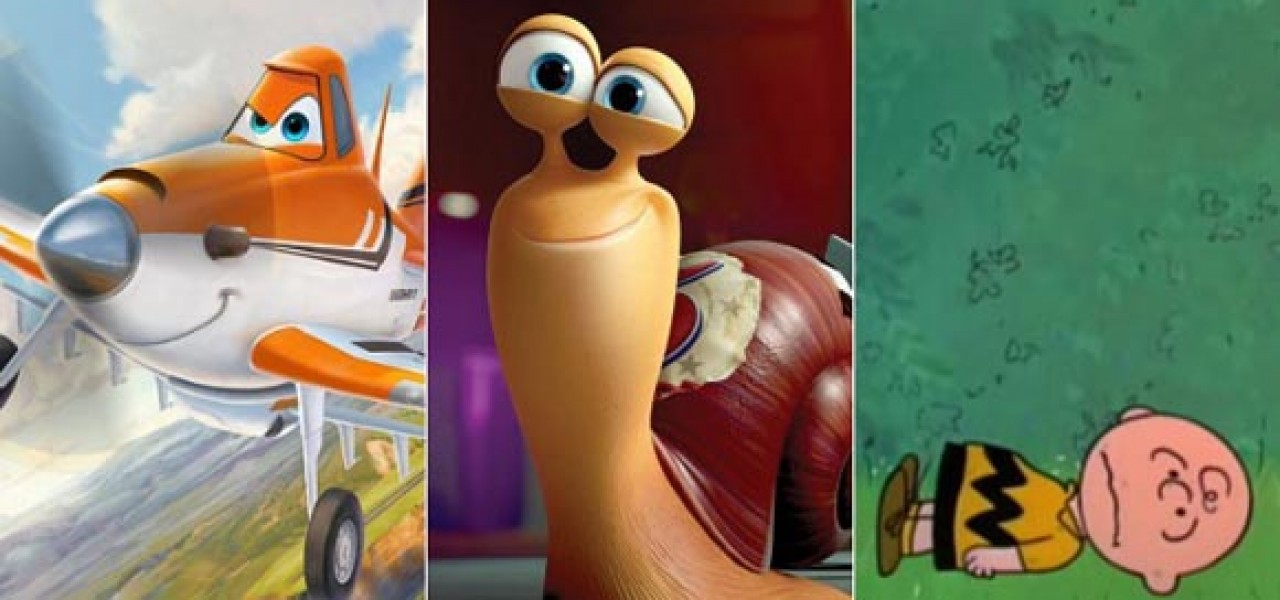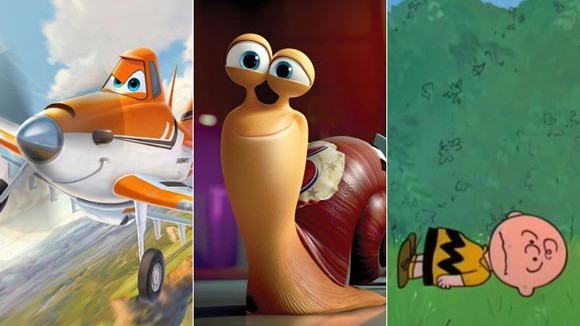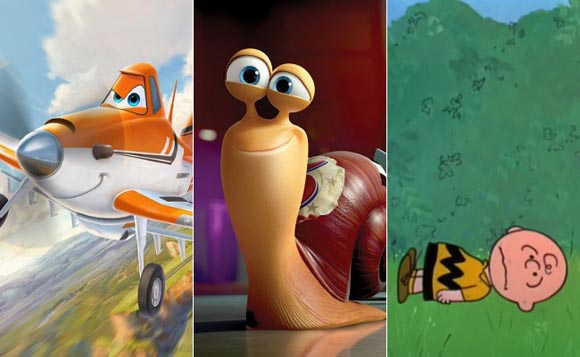

Why Must Animated Kids’ Movies Promote Self-Esteem Myths?

Luke Epplin writes convincingly in The Atlantic about the supremacy of the ‘magic-feather syndrome’ in kids’ animated features, which is the idea stemming from Dumbo that a character can do anything as long as they build up their self-esteem. The concept stretches back further, too. For example, The Little Engine That Could. Recent film like Planes and Turbo are both guilty of this phenomenon, according to Epplin:
Following one’s dreams necessarily entails the pursuit of the extraordinary in these films. The protagonists sneer at the mundane, repetitive work performed by their unimaginative peers. Dusty abhors the smell of fertilizer and whines to his flying coach that he’s “been flying day after day over these same fields for years.” Similarly, Turbo performs his duties in the garden poorly, and his insubordination eventually gets him and Chet fired. Their attitudes are all part of an ethos that privileges self-fulfillment over the communal good.
In addition to disparaging routine labor, these films discount the hard work that enables individuals to reach the top of their professions. Turbo and Dusty don’t need to hone their craft for years in minor-league circuits like their racing peers presumably did. It’s enough for them simply to show up with no experience at the world’s most competitive races, dig deep within themselves, and out-believe their opponents. They are, in many ways, the perfect role models for a generation weaned on instant gratification.
This predictable approach to storytelling is juxtaposed against the infinite riches of Charles Schulz’s comic Peanuts, and more specifically, the animated Peanuts feature A Boy Named Charlie Brown, in which Charlie Brown is denied instant gratification at every turn:
A Boy Named Charlie Brown might come across now as harsh and unforgiving–especially to audiences that aren’t familiar with the comic strip’s cruel undercurrents–but its lessons are more enduring than those from movies where characters fulfill their impossible dreams. Charlie Brown learns through Linus’s tough-love speech that failure, no matter how painful, is not permanent, and that the best means of withstanding it is simply to show up the next day to school with the fortitude to try again. Losing also forces Charlie Brown to come to terms with his own limitations. He can’t rely on a miraculous victory to rescue him from his tormented childhood. He followed his dream, it didn’t pan out, and he ends up more or less where he started, only a little more experienced and presumably with a little more respect from his peers. They may no longer be able to refer to him as “failure-face,” but Lucy still yanks away the football when he becomes too hopeful. It’s incremental, rather than life-altering, progress.
Epplin isn’t naive and knows that today’s market-tested, consumer-friendly animated features won’t take the kind of narrative risks that Schulz did in the 1960s. His suggestions for improvement are, nonetheless, quite sensible: “Contemporary animated films would never emulate the tough life lessons of A Boy Named Charlie Brown, but they’d do well to reintroduce the twin notions of failure and humility.”
The entire article is well worth a read, even if the release date of Dumbo is off by a couple years. And with a CGI Peanuts feature currently in the works, one hopes that the writers of the screenplay will stay true to the spirit of Schulz’s universe instead of following the cheap virtueless storytelling tropes of contemporary animation studio features.

.png)